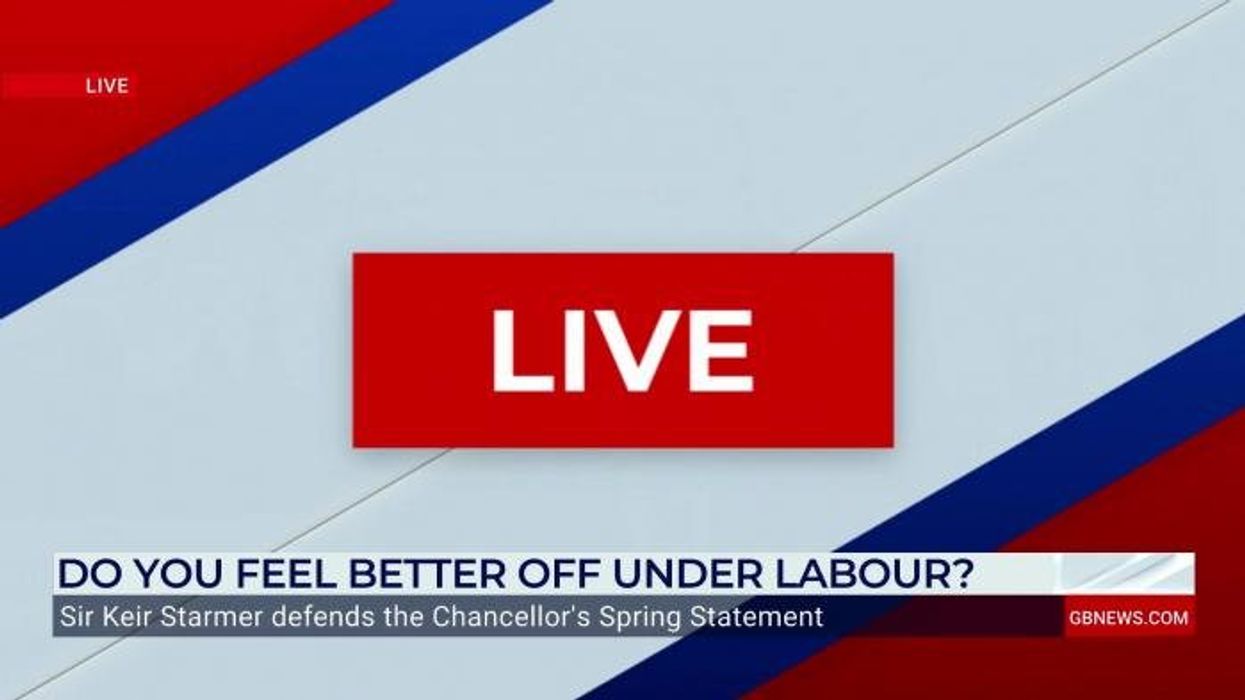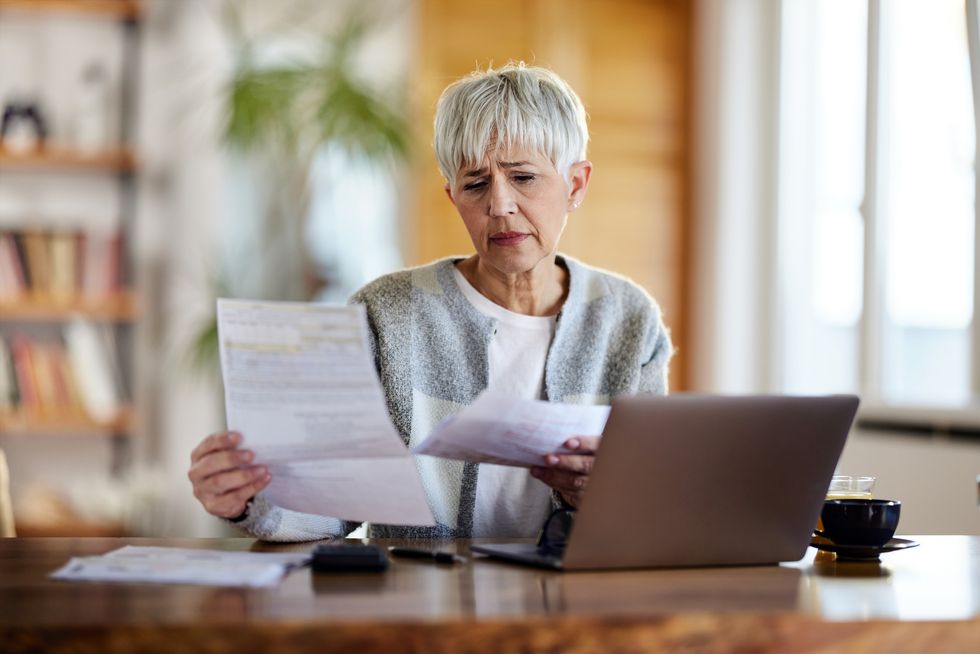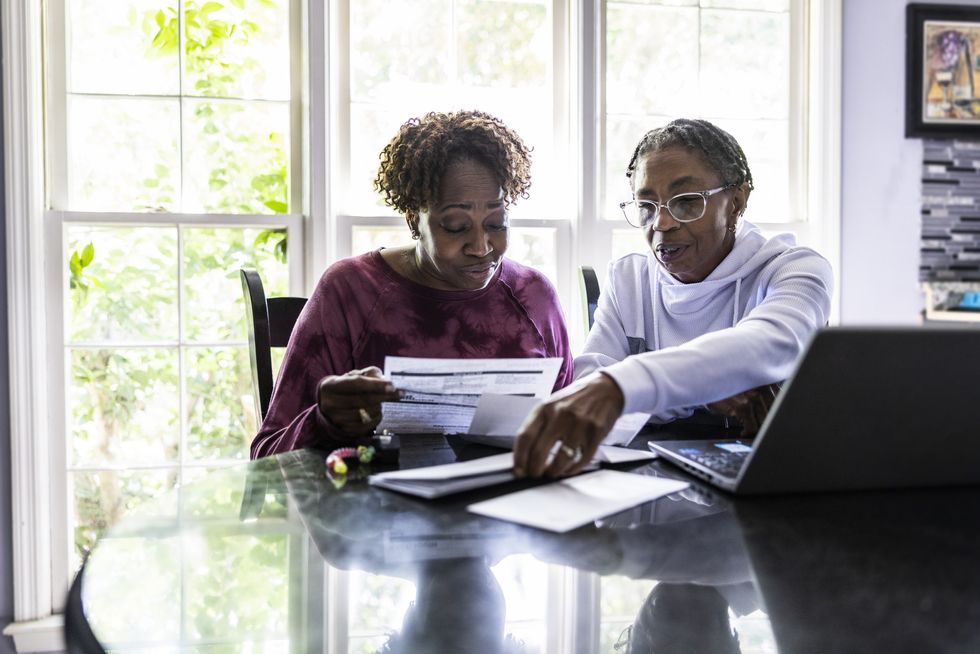Three pension changes that could affect how much you get paid next year

GBNEWS

Millions of pensioners could be hit by three major changes next April
Don't Miss
Most Read
Pensioners are set for major changes to their income from April 2026 following Wednesday’s Budget — with payments rising under the triple lock while more retirees move into the tax bracket because of the freeze on thresholds.
The reforms mean some will be better off, others worse off, and many will feel both effects at once.
1) State Pension rises by 4.8 per cent
The State Pension will rise by 4.8 per cent from April, taking the full new State Pension to around £12,548 a year, an increase of roughly £570 for those who reached retirement age after April 2016. Weekly payments for those on the full flat-rate pension will jump from £230.25 to £241.40.
Those who retired before April 2016 will also see their income rise, though the basic State Pension will deliver a smaller cash uplift of around £440 per year.
This year’s increase is rooted in the triple lock, which compares inflation, earnings growth and a 2.5 per cent minimum floor. September’s inflation rate was 3.8 per cent, but average wage growth between May and July came in at 4.8 per cent, so earnings set the pace.
Despite the political debate surrounding its affordability, the Chancellor pledged to maintain the triple lock for the rest of this Parliament.
The standard minimum guarantee for Pension Credit is also rising by 4.8 per cent from April. Pension Credit tops up income for pensioners on low incomes.
Currently, it guarantees £227.10 a week for single pensioners and £346.60 for couples. From April, those amounts will rise to around £238 per week for single retirees and around £363.23 per week for couples — an increase of £10.90 and £16.63 per week respectively.
Over a full year, this works out at £566.80 more for single recipients and £895.96 more for couples.
 Britons will need to hold a substantial amount in pensions or other savings to top up the State Pension in order to achieve the lifestyle they want | GETTY/PA
Britons will need to hold a substantial amount in pensions or other savings to top up the State Pension in order to achieve the lifestyle they want | GETTY/PA2) Not every pension payment rises by 4.8 per cet
While the full State Pension will rise by 4.8 per cent, not all pension elements increase at the same rate. Payments linked to SERPS and S2P will rise by 3.8 per cent, in line with September inflation rather than the full triple lock figure.
Financial planners warn that the headline 4.8 per cent increase does not reflect the reality for millions of retirees. Lucie Spencer, Partner in Financial Planning at Evelyn Partners, said: "The reality is that pensioners receive not ‘the state pension’ but a dizzying array of different payouts."
Only 36 per cent of pensioners receive the full new State Pension, and income varies significantly depending on National Insurance history, retirement date and whether an individual opted out of previous pension schemes.
Older retirees typically receive less than the headline rate and often rely on private pensions or additional savings to meet living costs.
 Britons are unaware of how far the state pension will go in retirement | GETTY
Britons are unaware of how far the state pension will go in retirement | GETTY3) Frozen tax thresholds and the effect on pension income
The extra income from April comes at a time when the personal allowance remains frozen at £12,570 until at least 2029/30. As State Pension payments rise each year, more retirees will move closer to — or exceed — the tax threshold.
Former Pensions Minister Steve Webb said: "Up to 10 million pensioners could be paying income tax by the end of the decade."
With the full State Pension expected to reach at least £12,861 by 2027/28, some pensioners will pay tax on their State Pension alone, even before accounting for private pension income, SERPS top-ups or investment returns.

The ISA allowance for under-65s will fall from £20,000 to £12,000 from April 2027
| GETTYSteven Cameron, pensions director at Aegon, said: "Under the triple lock, the full state pension will increase by a minimum of 2.5 per cent in future years, so more pensioners will begin paying tax simply because their income has risen while the personal allowance hasn’t."
Other financial changes affecting retirement planning
The Budget also announced wider savings reforms that could influence retirement planning.
The ISA allowance for under-65s will fall from £20,000 to £12,000 from April 2027, while salary sacrifice pension contributions over £2,000 will attract National Insurance from April 2029.
Andrew Prosser, head of investments at InvestEngine, said: "Lost tax efficiency now means lost compound growth later."
Saga Money’s Alex Edmans added: "We believe it's essential that retirement saving remains affordable and urge those affected to review their pension plans now."










